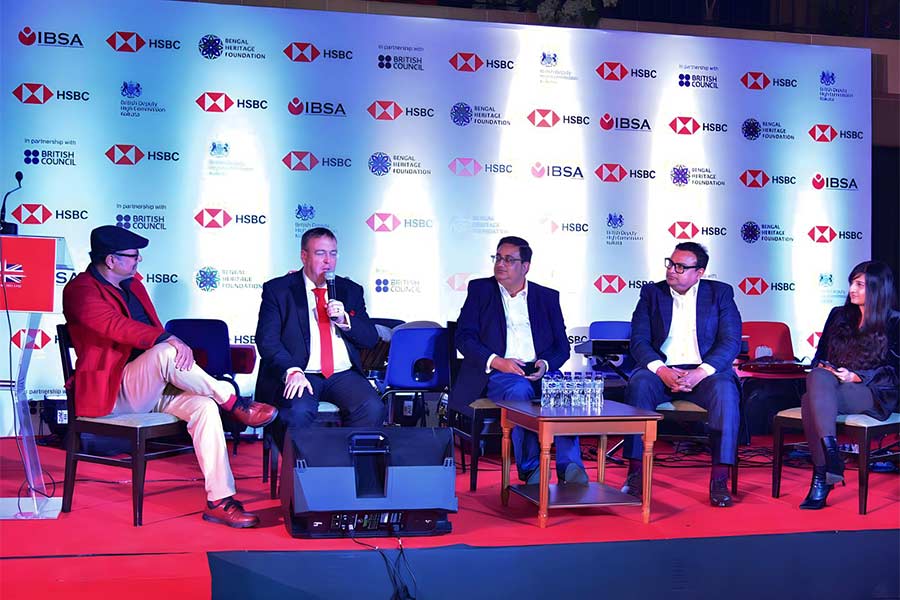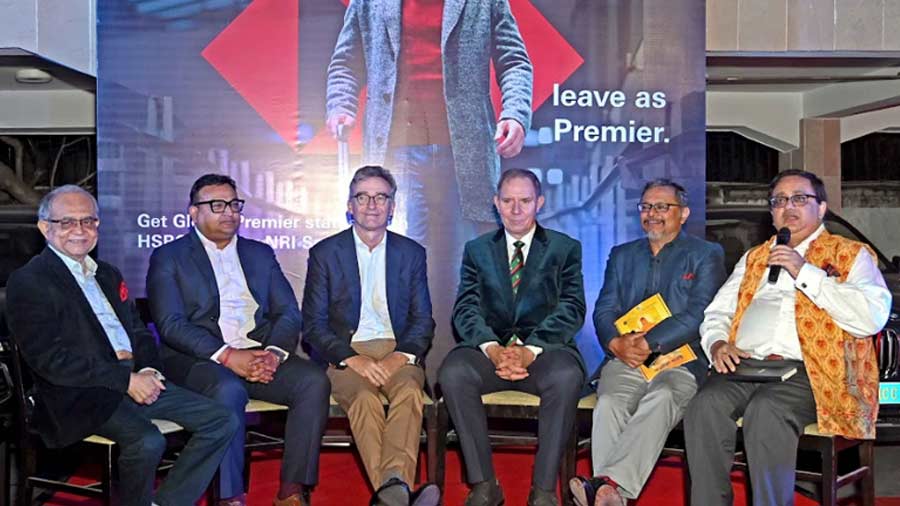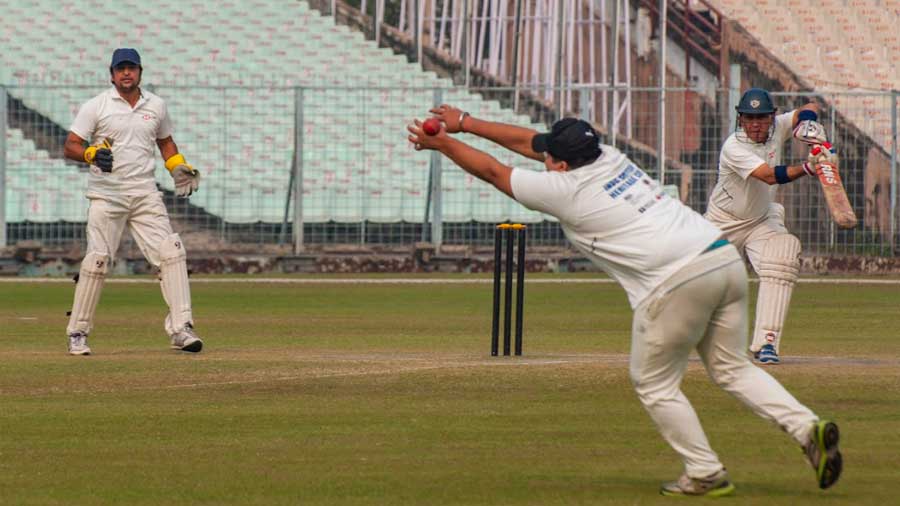As the chills of the winter months take over the Northern Hemisphere, the stately Siberian cranes migrating to India bring companions along. While the cranes come in search of food, their companions forage for something much more valuable — reunion. Thronging in thousands around airport conveyor belts, NRIs make their way back to the warmth of their Kolkata homes. The Bengal Heritage Dinner, hosted at the British Club on Ho Chi Minh Sarani by the Bengal Heritage Foundation (BHF), a UK-based charity, in collaboration with the British Deputy High Commission, British Council, and the Indo-British Scholars’ Association (IBSA), was an ode to such UK-based Bengalis.
BHF, a non-profit organisation committed towards highlighting and uplifting the cultural heritage of Bengal in the UK through the London Sharad Utsav, among other annual events, held the latest instalment of its annual dinner on December 28. The evening, attended by UK-based families and associates of the organising bodies, featured a mellifluous soiree by Michael Banerjee’s troupe amidst an array of hors d’oeuvres.
‘Indians have helped build what the UK is today’
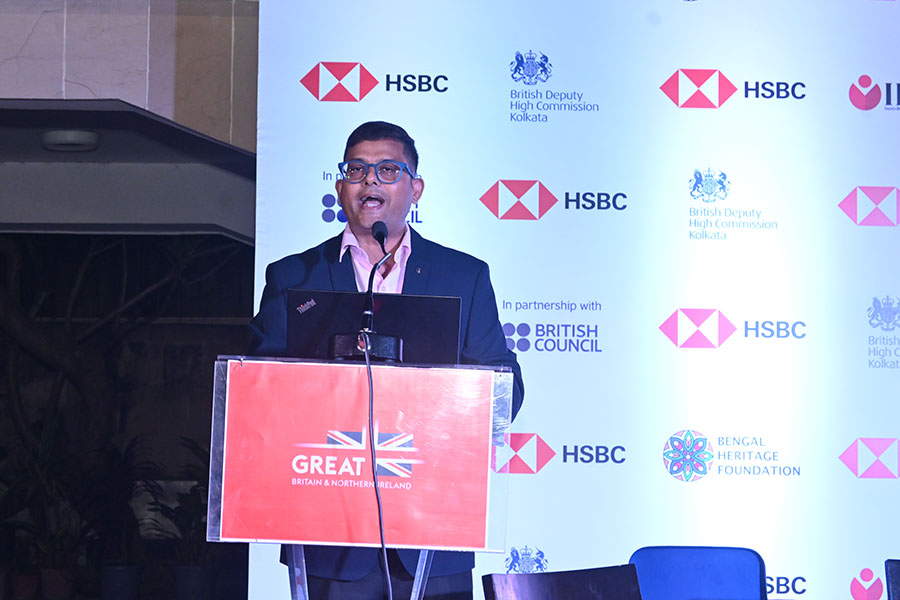
Rohit Kumar spoke about HSBC’s long-standing association with both India and the UK
After a welcome address to kick-off the evening by BHF trustee Sambrita Das, Rohit Kumar, vice-president and branch head of HSBC, Greater Kailash in Delhi, took to the stage. Kumar enumerated HSBC’s long-standing association with NRIs and its novel ventures for the smooth facilitation of monetary requirements across India and the UK, including elderly care services and round-the-clock global concierge services for Indian students pursuing education abroad. However, the highlight of the evening was what followed, in the form of a panel discussion on “Building living bridges: Exploring India-UK connection post-G20”.
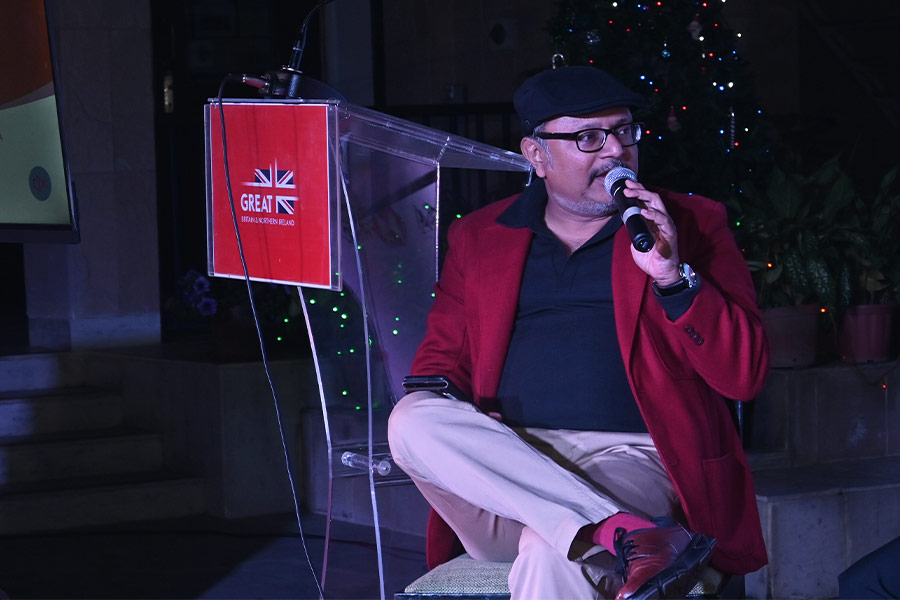
Debanjan Chakrabarti shed light on India’s need to learn from the UK’s creative cultural industry
“Indians form the largest ethnic minority in the UK. They have helped build what the UK is today,” stated Sourav Niyogi, BHF trustee and former president, as he commenced the session as moderator. He soon made way for Debanjan Chakrabarti, director of British Council, East and Northeast India, to share his insights. “The agrarian employment imbalance which prevails in India can be efficiently dealt with by promoting the creative cultural industry. Since 1997, the UK has put forward such an industry at the policy level and now the time to learn from it has come for India,” said Chakrabarti.
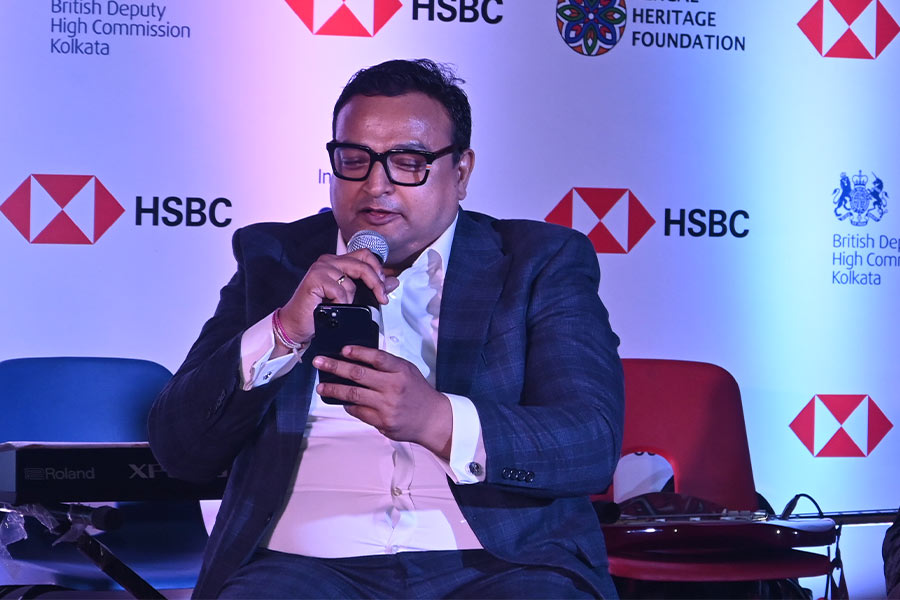
Saibal Ghosh shared statistics highlighting the influence of Indians in the UK
Highlighting the complex yet symbiotic relationship between the two nations, Saibal Ghosh, senior vice-president and regional sales manager of HSBC in Mumbai, shared: “The Indian diaspora in the UK generates £36.84 billion of revenue, employs 1,75,000 people and pays about a billion pounds in taxes every year. On the political front, 15 members of the UK parliament, including the prime minister, and 23 members of the House of Lords are of Indian origin. Moreover, both exports and imports to and from India have increased by about 24 per cent in the last year alone.”
‘Thoughts remain limited to Mumbai, Delhi and Bangalore when the British think of India. I aim to change that’
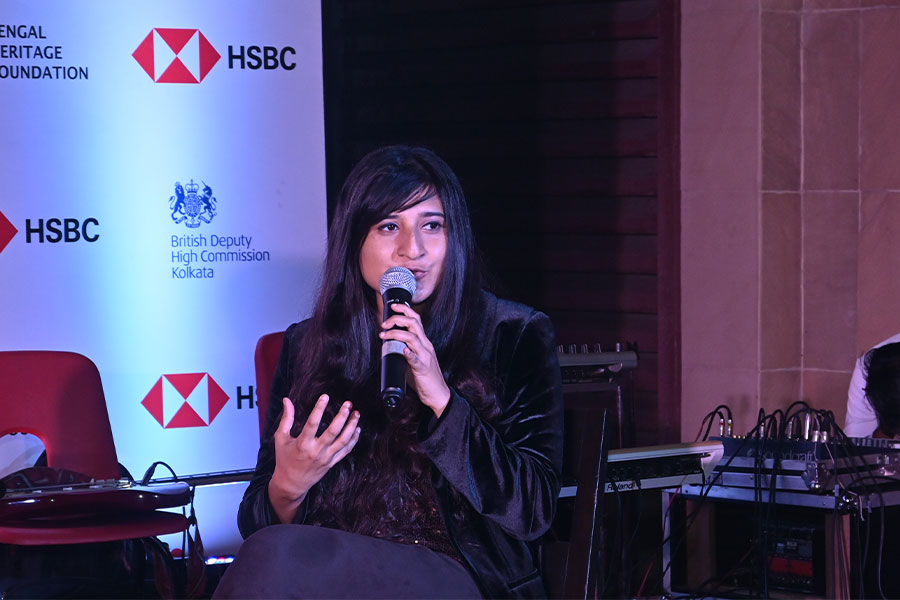
Ashwika Kapur underlined the need for everyone, not just Indians and the British, to come together to have urgent conversations regarding the environment
From across the table, filmmaker Ashwika Kapur weighed in. The first Indian woman to receive the “Green Oscar” for her contributions to environmental filmmaking, Kapur highlighted how environmental pollution knows no bridge or nationality: “We are all connected by our oceans. What happens in India’s waters affects habitats of the entire world. We once managed to extract permission for shooting in a pristine uninhabited white sand island in the Andamans. On approaching the isolated landmass, I spotted several multi-coloured specks on the beach. Upon closer inspection, they turned out to be plastic bottles… All of us collectively, not as Indians or British, but as humans, need to take responsibility for what is happening and encourage conversation about climate change.”
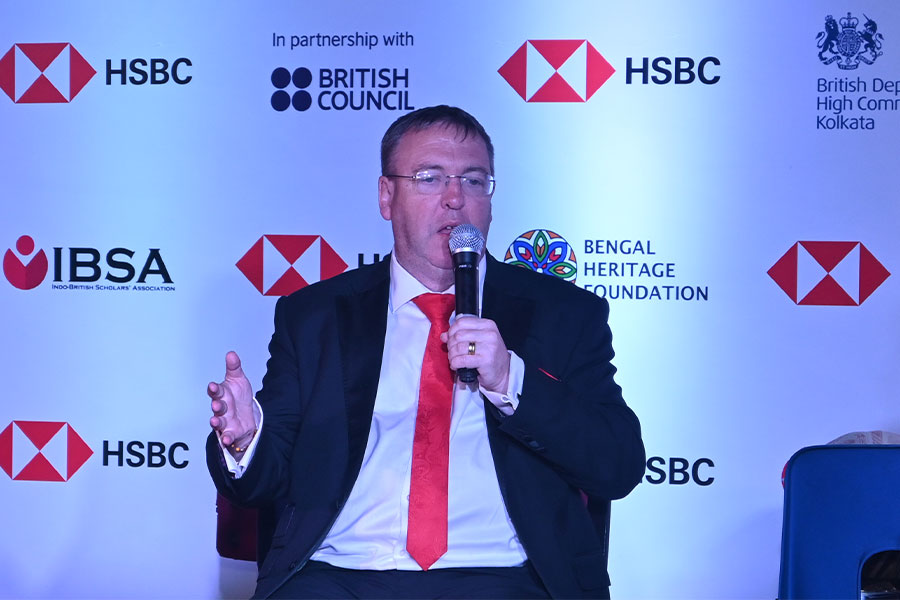
Andrew Fleming said that the UK wants to help foster the talent present in India
Andrew Fleming, the British Deputy High Commissioner in Kolkata, was present on the panel, too. “There’s a plethora of talent in India, and the UK wants to help foster it. A considerable number of Indian students migrate to the UK for higher studies every year. However, the same is not true the other way around. Thoughts remain limited to Mumbai, Delhi and Bangalore when the British think of India. I aim to change that,” said Fleming as heads across the floor nodded in agreement.
The evening concluded with BHF trustee Koushik Chatterjee recapping BHF’s projects across the year before ushering the guests towards drinks and dinner.
